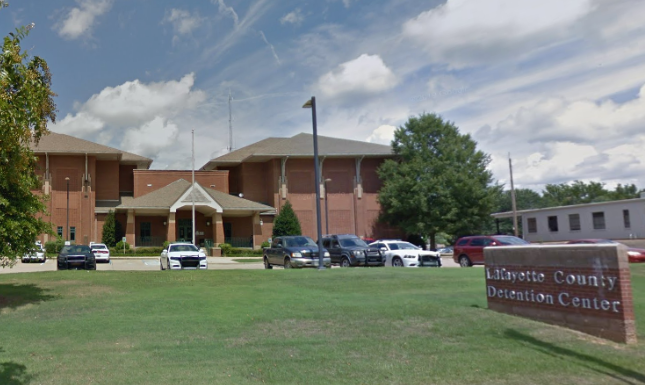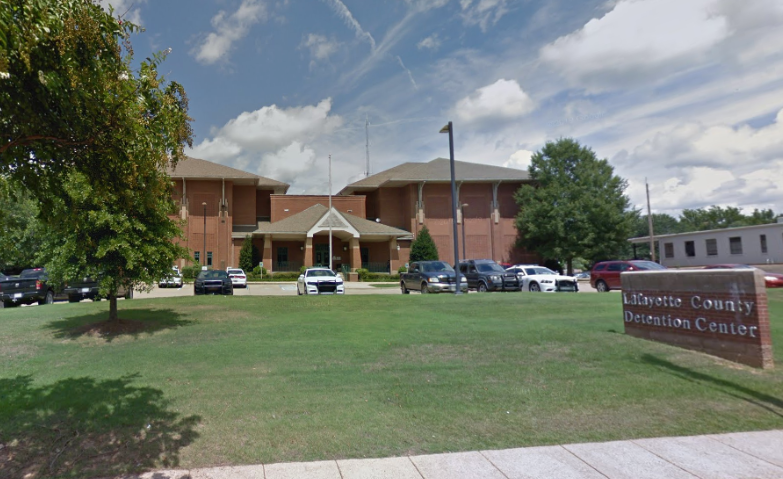Featured
Dealing with Addiction is a Team Effort at the Lafayette County Detention Center

By Alyssa Schnugg
News editor
alyssa.schnugg@hottytoddy.com

A county jail, like the Lafayette County Detention Center, usually holds people for a few days after an arrest and until they can make bond. However, people can be sentenced to spend up to a year in county jail, often for nonviolent crimes.
The jail is also a holding area for people who suffer from mental health issues and are waiting for a hospital bed to open up and many of those people are also dealing with addictions, according to Lafayette County Sheriff Joey East who also oversees the detention center.
If someone is suffering from addiction, even 24 hours without the substance they’re addicted to can be dangerous for the person in custody as well as other incarcerated people and employees who work in the jail once the withdrawal has set in.
Alcohol, opioid, narcotic and even nicotine addiction withdrawal can cause a wide range of reactions – from violent outbursts to seizures and even death if not treated quickly.
“Alcohol and opioid withdrawal can be the two most dangerous to the person with the addiction,” East said.
The detention center has a full-time nurse on staff and a physician who regularly meets with the inmates.
“A lot of facilities don’t have that, but we do,” East said. “We monitor them and if they’re getting to a level where it’s getting dangerous for them, we will get them to the hospital to get them in a safe place. Once they’re stable and we get them on medication, we bring them back and continue to monitor them.”
East said when some people are arrested and brought into the detention center, they have been using drugs or alcohol and that can be as, if not more, dangerous than those dealing with withdrawal.
“We have to carefully monitor them,” he said. “Sometimes we have to take them to the hospital as well.”
The Detention Center partnered with Communicare about two years ago and now the jail has access to a psychologist who comes to the center twice a week.
“We have more people dealing with mental health issues than addictions, so we can address both here now,” he said. “We can start their care here while they’re with us until they are moved to another facility or released.”
Melody Madaris, assistant director of Communicare, said her staff works closely with the medical team at the Detention Center.
“They contract us when they need someone to be seen and we go over,” she said. “We can assist with people going with withdrawal. The jail is really good at making sure the medical needs are taken care of. It’s very much a team process.”
Madaris said Communicare can provide the inmates with one-on-one therapy, peer support, case management as well medications that are prescribed by the psychologist.
“We can provide all of the same services as out-patient for them once they’re released,” she said.
Earlier this year, the Detention Center started holding 12-step program meetings for the inmates.
“We teamed up with a local church and we offer the 12-step alcohol and drug meetings,” East said.
Mandatory drug and alcohol addiction treatment programs are often part of someone’s sentence and must be completed before they’re released. If someone begins the program at the Detention Center and then is transferred to a state prison they will receive credit for the time they were in the program at the Detention Center.
East said the 12-step program has grown since it was started.
“When we first started we had six or seven and now, some classes are full,” he said. “We went from holding them once a week to twice a week now.”
Often, once someone is in the detention center and becomes clean, the person who they become while inside is not the same person they were on the outside, East said.
“We had a young man here not long ago who had a bad drug addiction problem and once he got cleaned up he did really well,” East said. “He was a trustee and worked hard. Got along with everyone. Once he got out, he got back on drugs and lost like 50 pounds. He came back in and we’ve fattened up him a bit and he’s working on getting clean again. So many people in here are good people who are just battling these alcohol and drug problems.”
East said the most common addiction inside the detention center is alcohol but he’s seeing more and more coming in with opioid and fentanyl addictions recently.











































